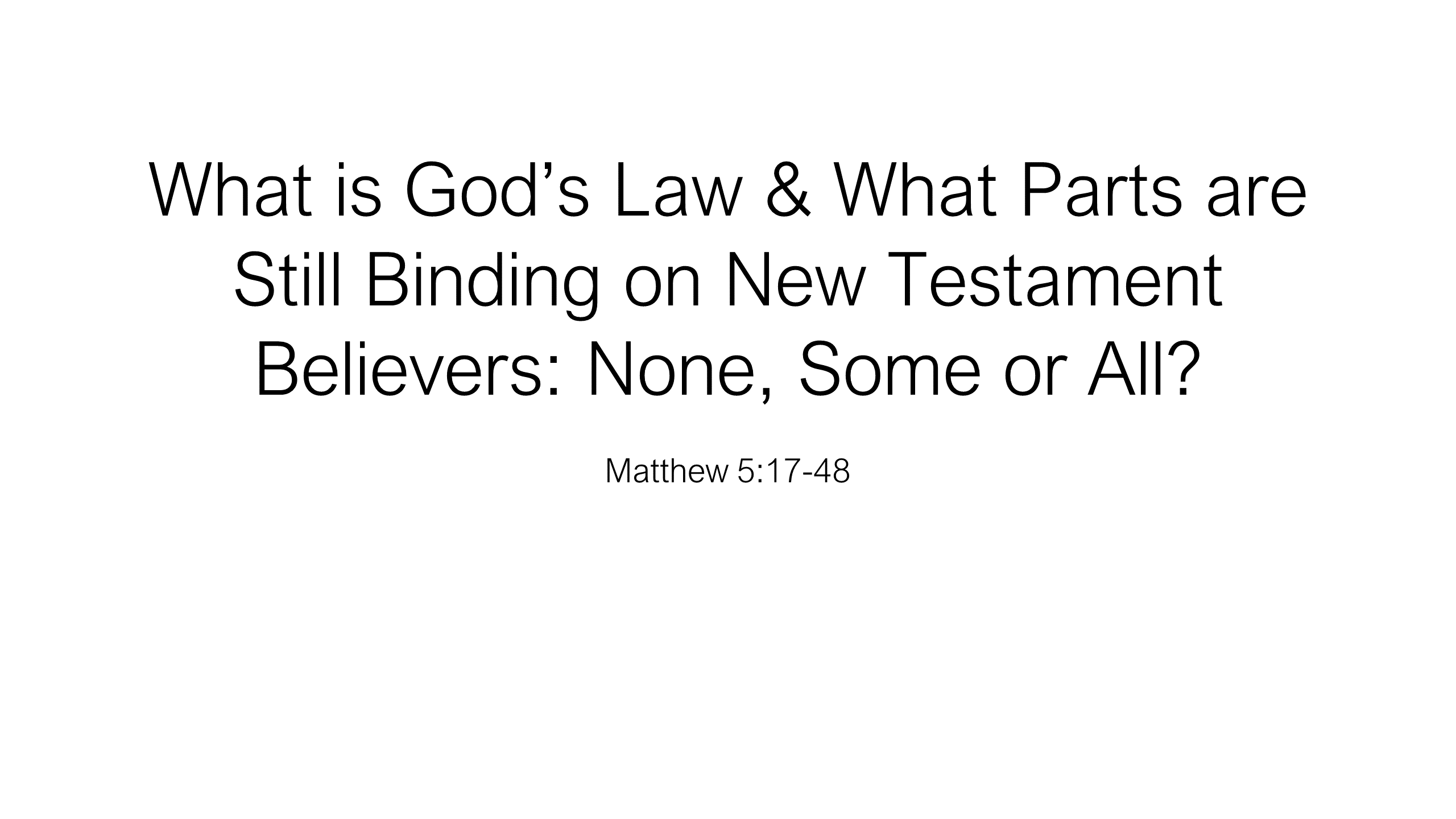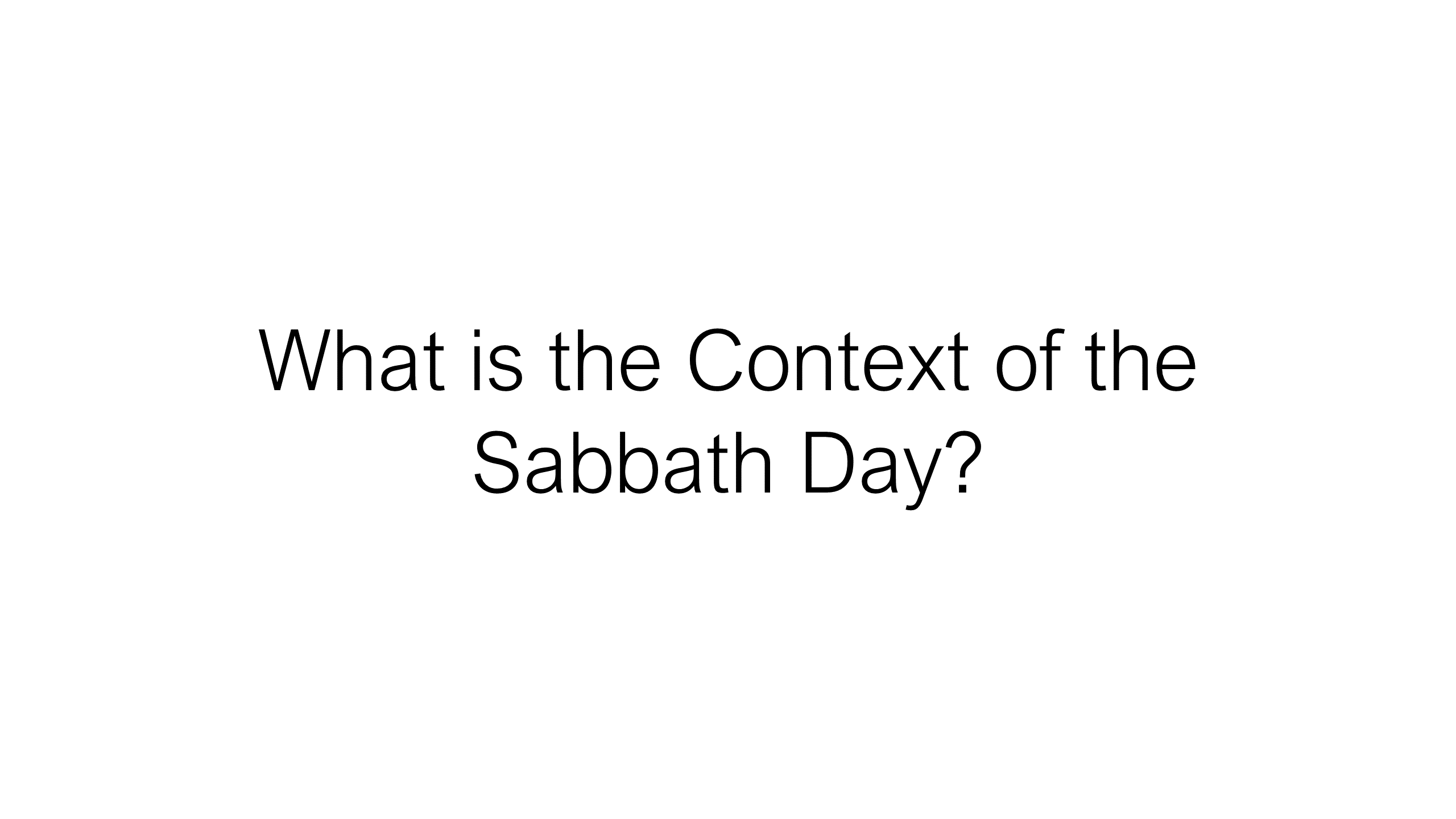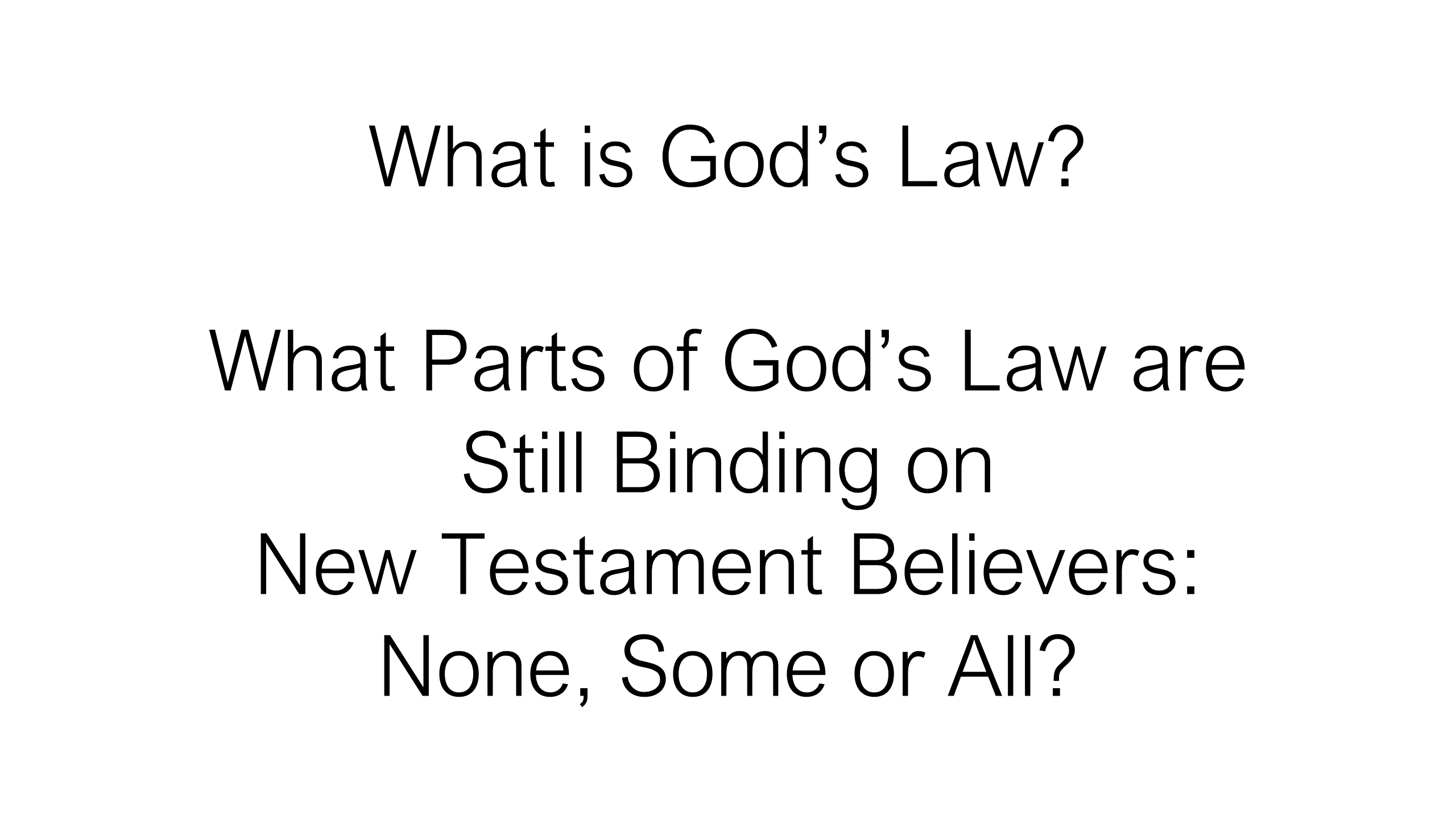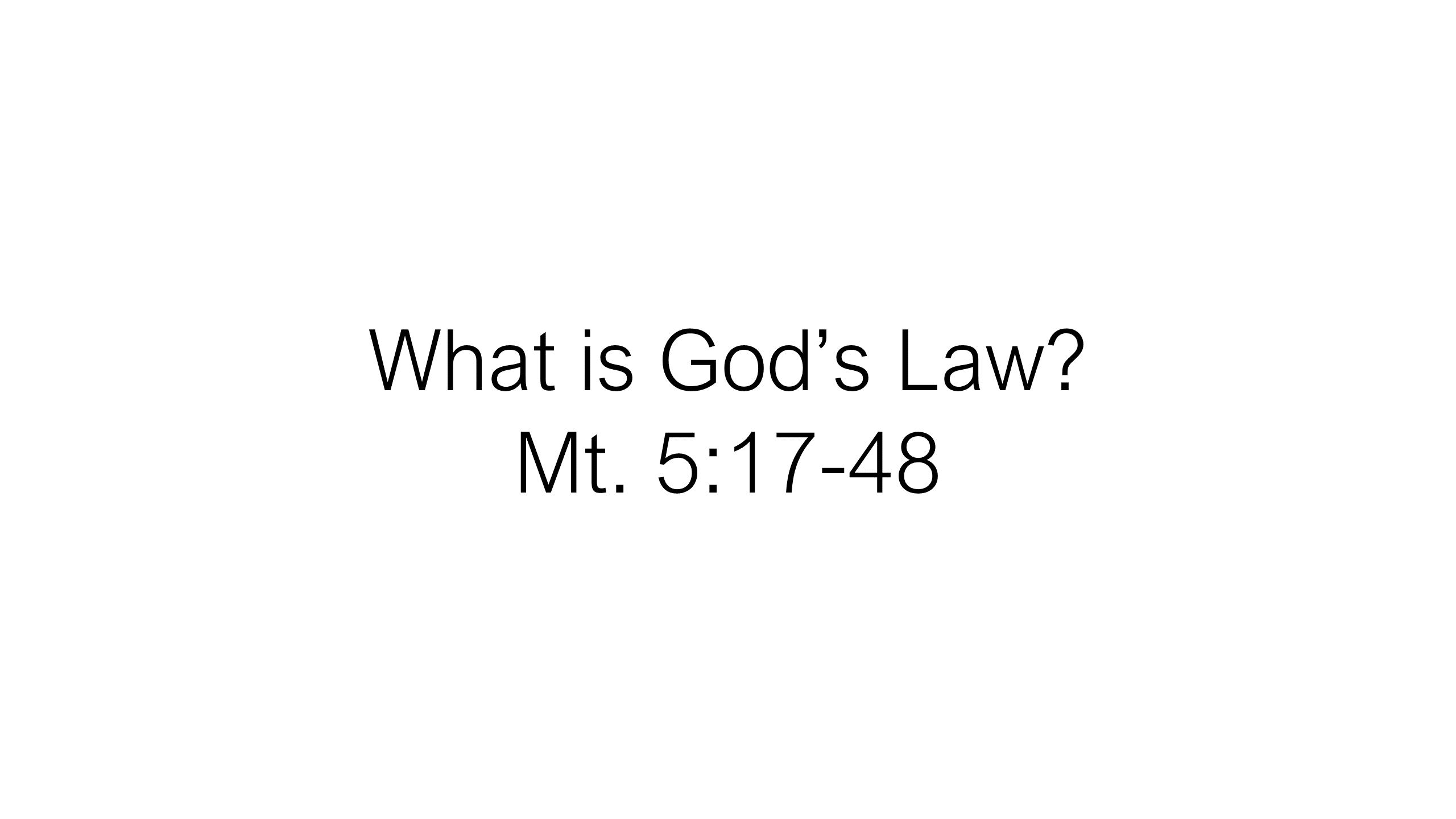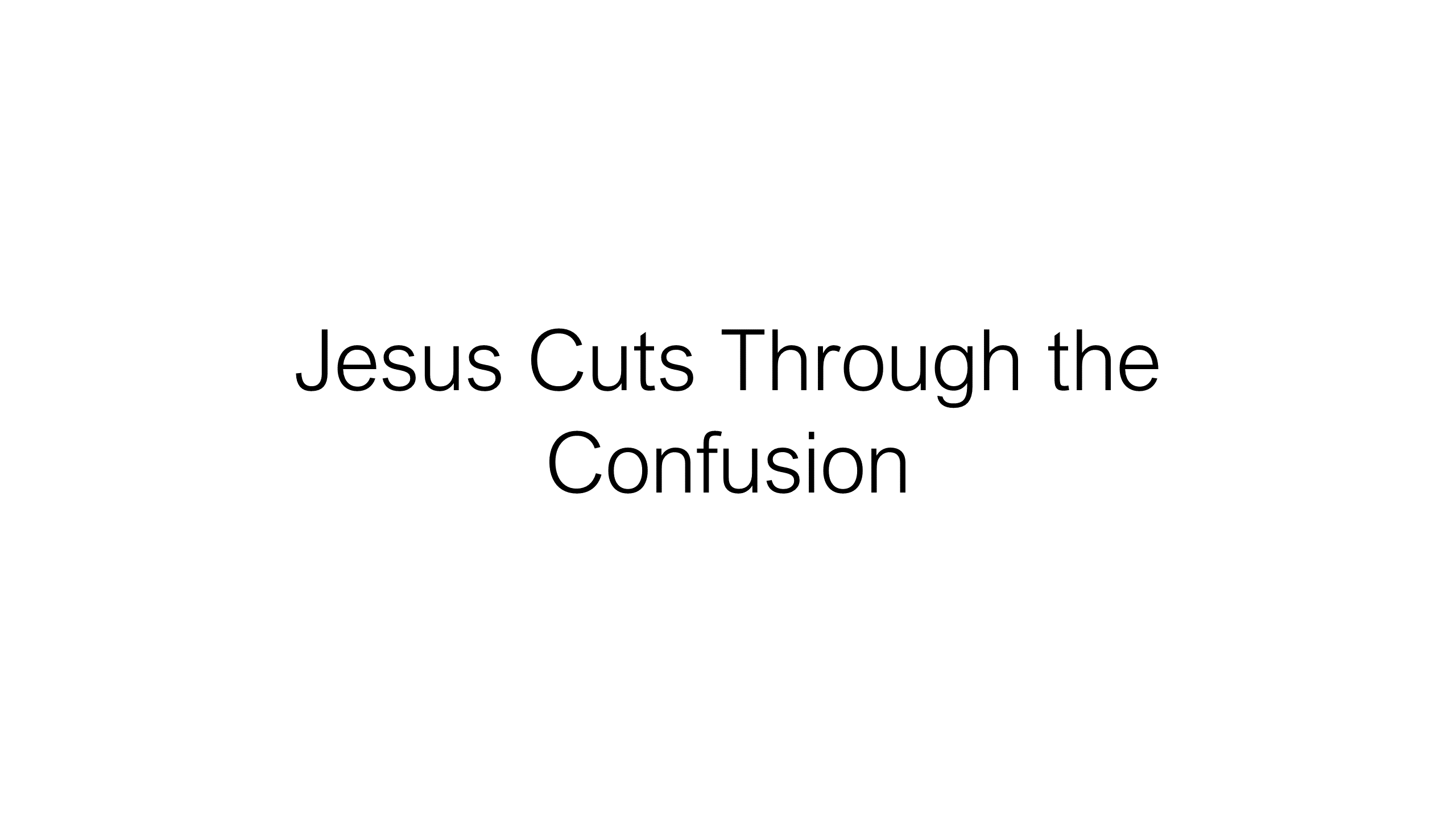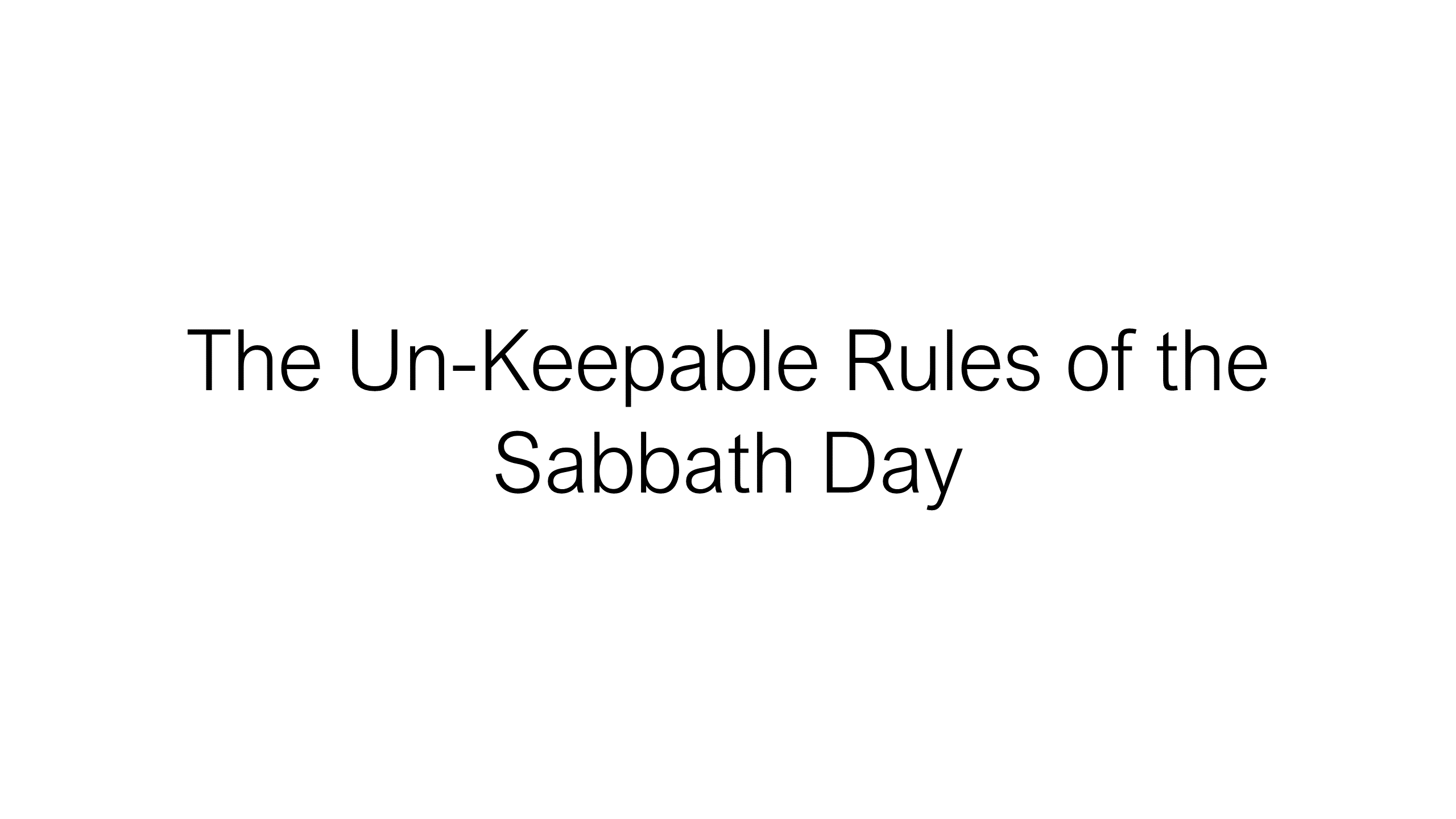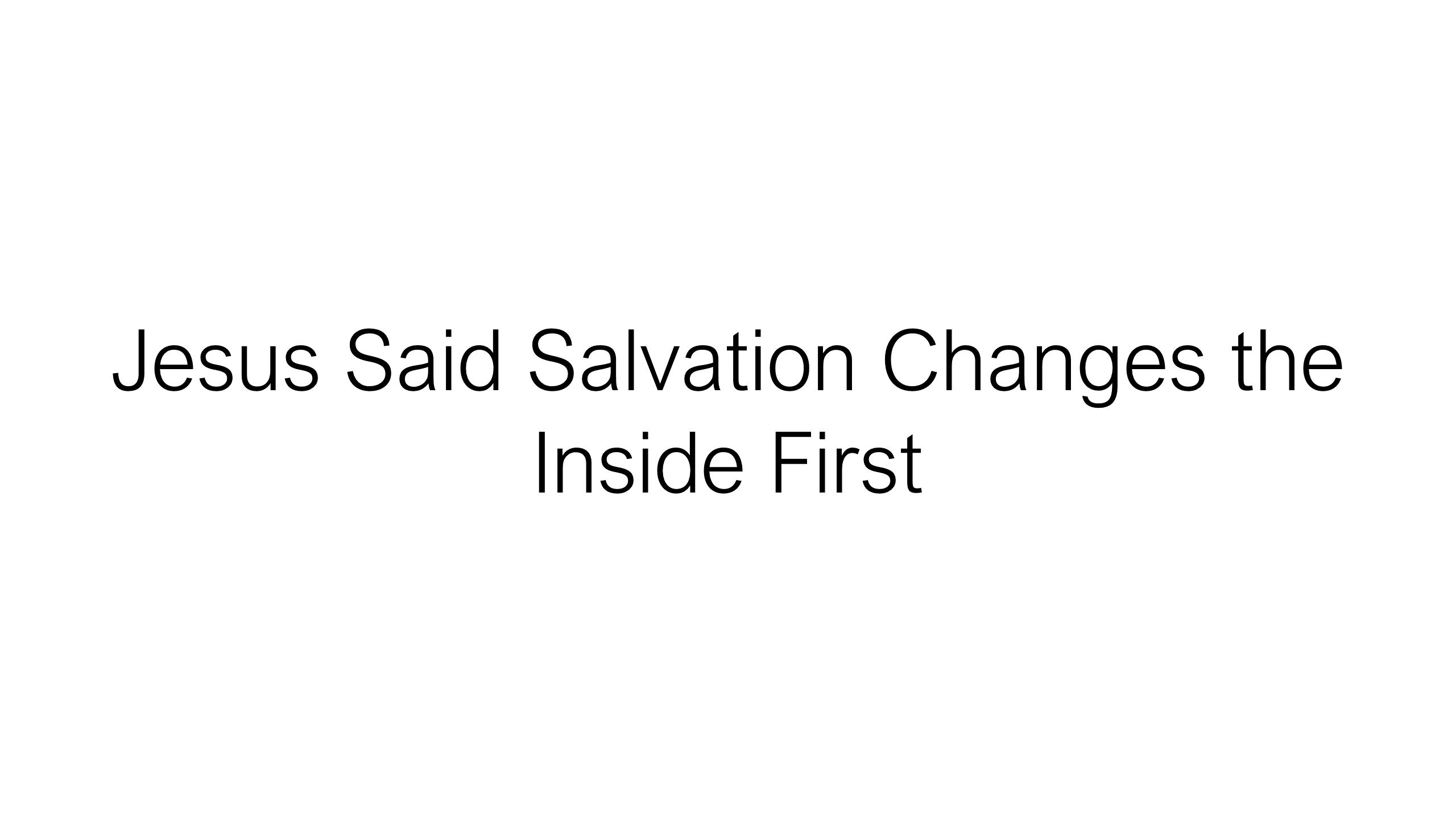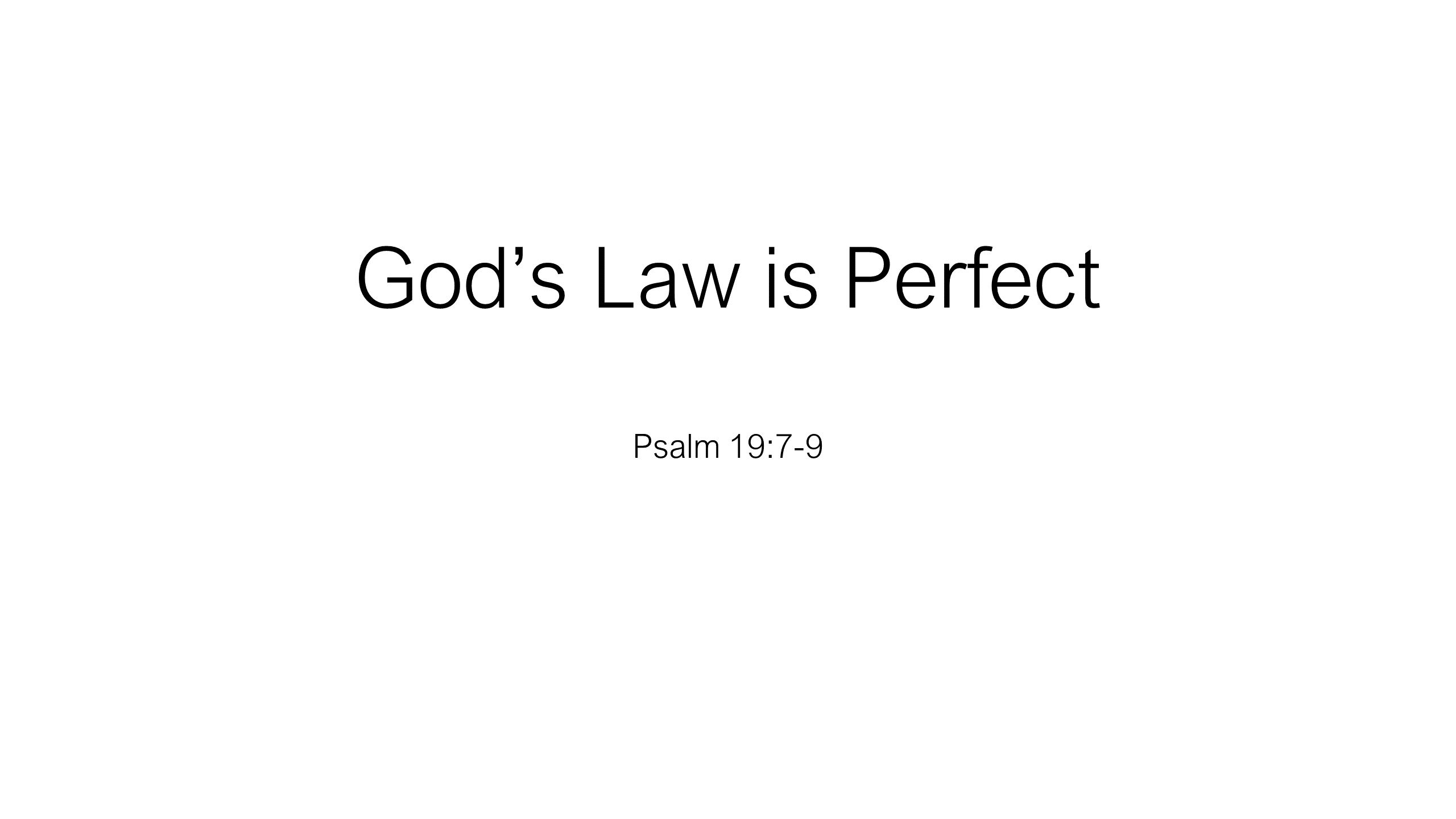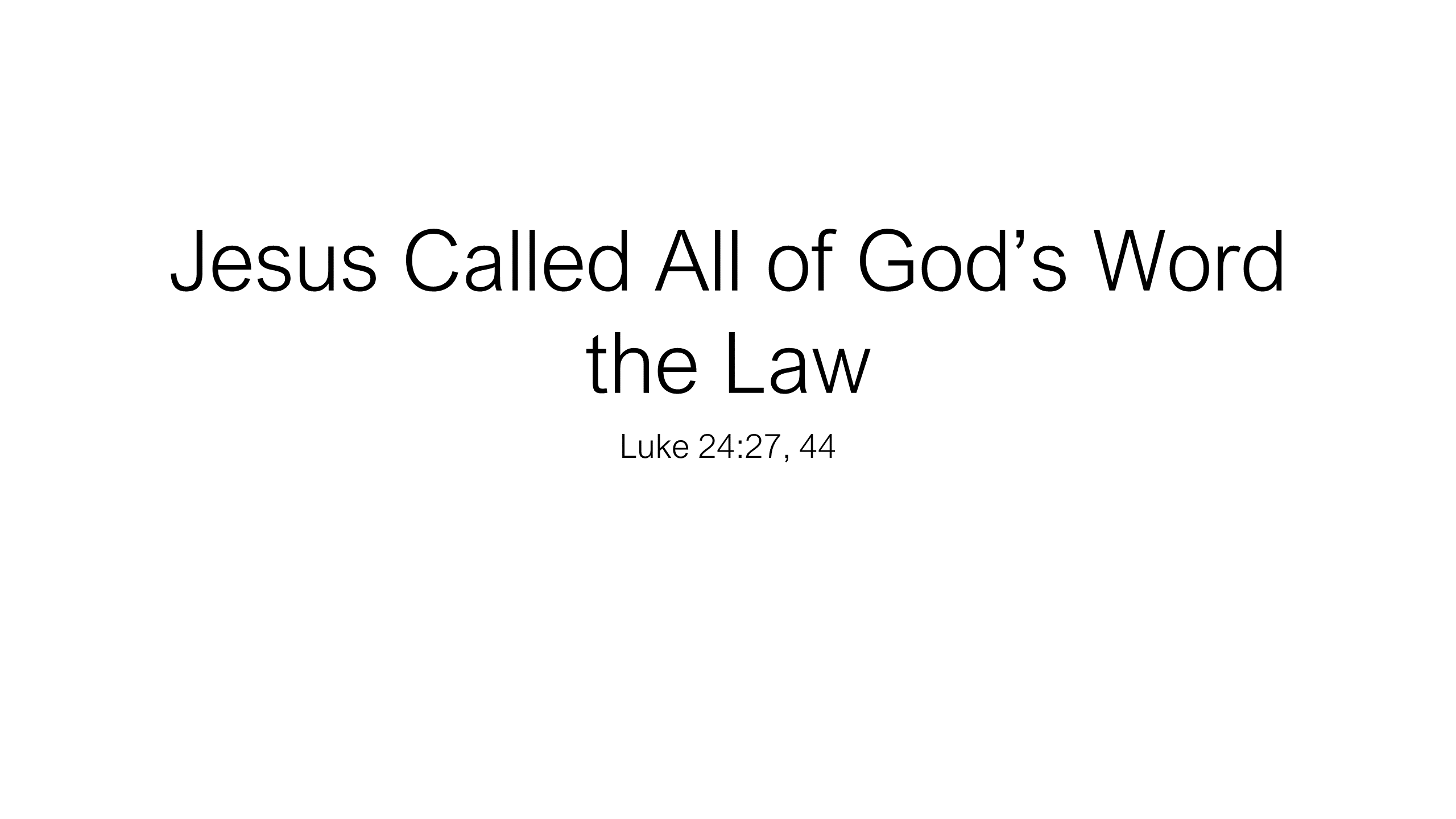If the YouTube video above is not available, here are two other ways to view:
150712AM HFG-11 Resting-3.docx
HFG-11
What is God’s Law & What Parts are Still Binding on New Testament Believers: None, Some or All?
Matthew 5:17-48
Today our goal is to understand one simple question, but that question connects everything we read in this book called the Bible.
Here is the simple question: What is God’s Law & What Parts are Still Binding on New Testament Believers: None, Some or All?

What is the Context of the Sabbath Day?
The Sabbath Day comes right out of the Law of God.
We have looked at the Seventh Day and God’s desire that all humans remember His as our Creator. This remembrance is built right into the rhythms of life in our seven-day week.
Then we looked at the Sabbath Day as laid down in the Law of Moses, and God’s desire that the nation of Israel see Him as the Law Giver, and as they saw their sinfulness confess their need of a Redeemer.
Now we come to this vital two-part question:
- What is God’s Law & 2. What Parts are Still Binding on New Testament Believers: None, Some or All?
To answer the first question we need to define God’s Law.
As we open to Matthew 5:17-48 today we are about to hear the final, and ultimate voice in any discussion of the Law. Our goal is simple. What was Jesus explanation of the Law?
Jesus as God speaking in Matthew 5 is the One who spoke and everything that exists in this Universe began.
Jesus as God the Son is the same one who instituted the 7th Day at Creation.
Jesus is Lord of the Sabbath that was written down on tablets of stone as the 4th Commandment.
So the best answer possible on what is the Law and what should it mean to us today comes from Jesus. To set the stage for our reading, Jesus is preaching His first sermon. We call it the Sermon on the Mount. Matthew opens with this sermon and it is all about God’s Law.
What is God’s Law?
God’s Law is His Word. God’s Law is not merely the 10 Commandments, the Books of Moses, or even the Prophets. Jesus puts them all into one whole that He calls the Scriptures.
So Jesus launches into a lesson on God’s law. God did not give a set of rules to conform to in outward obedience.
God asks for an internal transformation that is humanly impossible. A change that can’t be earned by trying hard, or by keeping rules. A heart that loves to do God’s will in His Law is only a new heart that God graciously gives to all who believe that they are hopelessly sinful, unable to ever be good enough, and cry out to God for His mercy.
Those that heard Him were shocked. They had been taught a religion of just external rules that could be kept.
They heard Jesus point out the error of their mere outward behavior.
They were focused on externals, and Jesus was focused on internals.
Listen as you follow along and I read for Christ’s six times repeated phrase: “you have heard it said”. Jesus is contrasting their misunderstanding of God’s Law with His perfect explanation.
Matthew 5:17-48 (NKJV) “Do not think that I came to destroy the Law or the Prophets. I did not come to destroy but to fulfill. 18 For assuredly, I say to you, till heaven and earth pass away, one jot or one tittle will by no means pass from the law till all is fulfilled. 19 Whoever therefore breaks one of the least of these commandments, and teaches men so, shall be called least in the kingdom of heaven; but whoever does and teaches them, he shall be called great in the kingdom of heaven. 20 For I say to you, that unless your righteousness exceeds the righteousness of the scribes and Pharisees, you will by no means enter the kingdom of heaven.
21 “You have heard that it was said to those of old, ‘You shall not murder, and whoever murders will be in danger of the judgment.’ 22 But I say to you that whoever is angry with his brother without a cause shall be in danger of the judgment.
27 “You have heard that it was said to those of old, ‘You shall not commit adultery.’ 28 But I say to you that whoever looks at a woman to lust for her has already committed adultery with her in his heart.
31 “Furthermore it has been said, ‘Whoever divorces his wife, let him give her a certificate of divorce.’ 32 But I say to you
33 “Again you have heard that it was said to those of old, ‘You shall not swear falsely, but shall perform your oaths to the Lord.’ 34 But I say to you,
38 “You have heard that it was said, ‘An eye for an eye and a tooth for a tooth.’ 39 But I tell you not to resist an evil person.
43 “You have heard that it was said, ‘You shall love your neighbor and hate your enemy.’44 But I say to you, love your enemies, bless those who curse you, do good to those who hate you, and pray for those who spitefully use you and persecute you, 48 Therefore you shall be perfect, just as your Father in heaven is perfect.
Pray
What did Jesus do? Jesus took the law of God back to the way God intended it to be.
Jesus Cuts Through the Confusion
Jesus is teaching this message in Matthew 5-7 because everything had gotten confused in the life of the Jewish people. God’s law had become hidden in a swirling mass of additions, enlargements, and misapplications.
By Christ’s time the Sabbath Day had become the central feature of Jewish live. There were 24 chapters devoted to the rules of the Sabbath written down from the traditions of the Scribes, and enforced by the zeal of the Pharisees.
There were so many rules that one scribe wrote that it took two and a half days just to read them all. But everyone lived with the fear of doing anything wrong on the Sabbath. There were rules about everything.
How much food you could eat at a time (the equivalent of two dried figs), any more weight in your hand was work.
How far you could walk (three thousand steps).
What you could hold (nothing associated with any work).
But more than what you could do, it was immensely clear what couldn’t be done.
The Un-Keepable Rules of the Sabbath Day
Here is the short list that Dr. Alfred Edersheim notes for us in his Life & Times of Jesus the Messiah:
You couldn’t take a bath for fear water would spill onto the floor and wash the floor as it fell off you.
If there was a lit candle, you couldn’t blow it out; chairs couldn’t be moved because they tended to drag ruts across the ground, and that was a violation.
A woman couldn’t look in a glass, because she might see a gray hair and pluck it out.
Jewelry couldn’t be worn, because it weighed more than a dried fig.
You couldn’t carry more grain in your hand than would fit into a lamb’s mouth.
You couldn’t leave a radish in salt because it would become a pickle.
There were laws about writing, and about getting the dirt off your clothes; it was very intricate to get the dirt off your clothes without violating the Sabbath.
You could only carry ink enough for two letters – not letters to people, but alphabetical letters[1].
Religion is Always About Externals
So, the bottom line is that the religious people of Christ’s day felt that as long as they fastidiously guarded their lives so that they didn’t do certain actions named in the law as wrong (such as killing, stealing, committing adultery) they were great.
Jesus however said that they were dead wrong, because God doesn’t look merely at outward appearances, God looks at the heart.
It is not merely avoiding wrongs actions that God is concerned about: it is the thoughts, the desires, and the attitudes that led to those wrong actions that God wants changed.
Anyone can conform their own outward behavior, for certain periods of time. Often this conformity is for no other reason than pride, that some people obey rules. And spiritual pride in external observance was overflowing in the religious people of Christ’s day. In fact:
The Deadliest Sin is Pride
These[2] religious leaders and all the people that followed them, which was the majority of the population of Israel, had on the outside said no to a lot of fleshly behaviors.
They said no to outward violations of the Ten Commandments. They said no to adultery, sins of the flesh, lying, murder, lusts that manifested themselves in wicked behaviors, these are the forbidden sins. These are the open sins. They gladly restrained themselves from those on the outside. They could say with the rich, young ruler, “All of these laws have I kept from my youth up.”
You say, “Well how can sinners do that?” Because pride, spiritual pride, is such a self-satisfying sin that it makes up for all that you have to forfeit. Listen, spiritual pride is like an aphrodisiac, it’s like a drug.
Spiritual pride is a high, walking around in overtly spiritual pretense in the way you dress and the way you conduct yourself and making outward pretenses and outward prayers and outward acts of manifest fasting, making an issue out of your giving for all to see.
That’s what they did. They found so much personal satisfaction in spiritual pride that they were willing to let other behaviors go. Spiritual pride is a very, very powerful, powerful sin. It’s also a damning sin.
Beware of Externalism Today
The trap of external conformity and superficial obedience is still a deadly trap today. There are Christians who are only known for what they don’t do. The big, public sins of murder, adultery, lying are carefully avoided. But there is not an internal transformation.
As Jesus said the outside is white washed but inside there is corruption. How about it. Are you changed on the inside or just keeping up a good appearance on the outside?
Matthew 5:17-48 (NKJV) “Do not think that I came to destroy the Law or the Prophets. I did not come to destroy but to fulfill. 18 For assuredly, I say to you, till heaven and earth pass away, one jot or one tittle will by no means pass from the law till all is fulfilled. 19 Whoever therefore breaks one of the least of these commandments, and teaches men so, shall be called least in the kingdom of heaven; but whoever does and teaches them, he shall be called great in the kingdom of heaven. 20 For I say to you, that unless your righteousness exceeds the righteousness of the scribes and Pharisees, you will by no means enter the kingdom of heaven.
Murder starts in our hearts with unrepentant anger. 21 “You have heard that it was said to those of old, ‘You shall not murder, and whoever murders will be in danger of the judgment.’ 22 But I say to you that whoever is angry with his brother without a cause shall be in danger of the judgment. And whoever says to his brother, ‘Raca!’ shall be in danger of the council. But whoever says, ‘You fool!’ shall be in danger of hell fire. 23 Therefore if you bring your gift to the altar, and there remember that your brother has something against you, 24 leave your gift there before the altar, and go your way. First be reconciled to your brother, and then come and offer your gift. 25 Agree with your adversary quickly, while you are on the way with him, lest your adversary deliver you to the judge, the judge hand you over to the officer, and you be thrown into prison.26 Assuredly, I say to you, you will by no means get out of there till you have paid the last penny.
Adultery is First an Attitude of gratifying lust visually and mentally. 27 “You have heard that it was said to those of old, ‘You shall not commit adultery.’ 28 But I say to you that whoever looks at a woman to lust for her has already committed adultery with her in his heart. 29 If your right eye causes you to sin, pluck it out and cast it from you; for it is more profitable for you that one of your members perish, than for your whole body to be cast into hell. 30 And if your right hand causes you to sin, cut it off and cast it from you; for it is more profitable for you that one of your members perish, than for your whole body to be cast into hell.
Divorce is first an Attitude of fault-finding with your marriage partner. 31 “Furthermore it has been said, ‘Whoever divorces his wife, let him give her a certificate of divorce.’ 32 But I say to you that whoever divorces his wife for any reason except sexual immorality causes her to commit adultery; and whoever marries a woman who is divorced commits adultery.
Real Truthfulness starts internally. 33 “Again you have heard that it was said to those of old, ‘You shall not swear falsely, but shall perform your oaths to the Lord.’ 34 But I say to you, do not swear at all: neither by heaven, for it is God’s throne; 35 nor by the earth, for it is His footstool; nor by Jerusalem, for it is the city of the great King. 36 Nor shall you swear by your head, because you cannot make one hair white or black. 37 But let your ‘Yes’ be ‘Yes,’ and your ‘No,’ ‘No.’ For whatever is more than these is from the evil one.
Forgiveness is first an Attitude. 38 “You have heard that it was said, ‘An eye for an eye and a tooth for a tooth.’ 39 But I tell you not to resist an evil person. But whoever slaps you on your right cheek, turn the other to him also. 40 If anyone wants to sue you and take away your tunic, let him have your cloak also. 41 And whoever compels you to go one mile, go with him two. 42 Give to him who asks you, and from him who wants to borrow from you do not turn away.
Real Love is impossible humanly speaking. 43 “You have heard that it was said, ‘You shall love your neighbor and hate your enemy.’44 But I say to you, love your enemies, bless those who curse you, do good to those who hate you, and pray for those who spitefully use you and persecute you, 45 that you may be sons of your Father in heaven; for He makes His sun rise on the evil and on the good, and sends rain on the just and on the unjust. 46 For if you love those who love you, what reward have you? Do not even the tax collectors do the same? 47 And if you greet your brethren only, what do you do more than others? Do not even the tax collectors do so? 48 Therefore you shall be perfect, just as your Father in heaven is perfect.
Jesus Said Salvation Changes the Inside First
You see[3], if you’re not regenerate, if you haven’t been transformed, if you haven’t been changed and converted by belief in the gospel of Jesus Christ, there is nothing that can deal with the wretchedness of your heart.
You can mask it by controlling your behavior but you can’t do a thing about it on the inside. That’s why Jesus said about them, they’re like whited sepulchers, they’re painted white on the outside but inside they’re full of stinking dead-men’s bones.
They were okay with living a wretched life of sin in their own minds, and as far as the outside was concerned, restraining their visible behavior for the sake of spiritual pride because spiritual pride is such a high.
Pride is the most satisfying of all sins.
The zenith of this system of manifest spiritual pride was Sabbath. On Sabbath they all came out into public view at the synagogue. On that great day, all the focus of their self-righteous proud system reached its clarity. This was their time to shine.
So as we read Matthew 5 and all of Christ’s teaching on the Law, what law was He referring to? To understand His teaching we need to understand what was God’s Law in the Old Testament.
God’s Law is Perfect
For just a moment turn back to Psalm 19. Here we find God Himself explaining what he thinks of His Law. In Psalm 19:7-9 God explains the character and power of His law.
Psalm 19:7-9 (NKJV) The law of the Lord is perfect, converting the soul;
The testimony of the Lord is sure, making wise the simple;
8 The statutes of the Lord are right, rejoicing the heart;
The commandment of the Lord is pure, enlightening the eyes;
9 The fear of the Lord is clean, enduring forever;
The judgments of the Lord are true and righteous altogether.
God’s law is perfect because God gave His Law.
God is perfect, so His Law is perfect.
God is unchanging, so His law is unchanging.
So we have this perfect law, given by God, that will never go away, wear out, get repealed, or ever forgotten. One more thing, our relationship to God’s Law will forever impact us in Heaven!
Now back to something unsettling that Jesus said in Matthew 5:19:
“Whoever therefore breaks one of the least of these commandments, and teaches men so, shall be called least in the kingdom of heaven; but whoever does and teaches them, he shall be called great in the kingdom of heaven”.
That is pretty serious. So back to what is God’s perfect, changeless, vital forever law?
Jesus Called All of God’s Word the Law
What is amazing is that Jesus saw all of the Old Testament as the teachings from God, the Scriptures, or the Law of God. He saw the Old Testament as a unit that came from God, speaks for God, and is connected to all the God is doing in the world. Nine times the New Testament calls the Old Testament by the term “the law and the prophets”[4].
Notice in Luke 24 as Jesus was summarizing truth after His resurrection how He blended together Moses (the Law) with the Prophets, and calls all of them Scriptures.
God speaks with one voice through Moses, the Law, the Prophets, the Scripture. It is His Law or the Diving teachings of the Divine Teacher.
Luke 24:27, 44 (NKJV) And beginning at Moses and all the Prophets, He expounded to them in all the Scriptures the things concerning Himself. 44 Then He said to them, “These are the words which I spoke to you while I was still with you, that all things must be fulfilled which were written in the Law of Moses and the Prophets and the Psalms concerning Me.”
Next time we will consider what Jesus said about the second half of that question: What Parts are Still Binding on New Testament Believers: None, Some or All? The answer we will see comes from God through Paul:
2 Timothy 3:16-17 (NKJV) All Scripture is given by inspiration of God, and is profitable for doctrine, for reproof, for correction, for instruction in righteousness, 17 that the man of God may be complete, thoroughly equipped for every good work.
Every word of God’s Word is from God.
Some of God’s Word was given just to Israel.
But most was given to everyone of all ages as the expression of the character of the God of the Universe whom we with new hearts WANT to serve, obey, please, and become in His image!
[1] http://www.gty.org/resources/sermons/2290/the-lord-of-the-sabbath
[2] Quoted from John MacArthur, 090614 Jesus Is Lord of the Sabbath, Part 2 Mark 3:1–6 Code: 41-12 (218 words)
[3] Quoted from John MacArthur, 090614 Jesus Is Lord of the Sabbath, Part 2 Mark 3:1–6 Code: 41-12 (172 words)
[4] Matthew 5:17;7:12; 22:40; Luke 24:27,44; Acts 13:15; 24:14; 28:23; Rom. 3:21.
Transcript
Let’s open our Bibles to Matthew 5, and what I would like to do this morning is begin something. All of you that watch Costco start forming over there, you notice it took a long time to get everything just right and then it went up fast. When you touch on a topic as big as this, you just can’t, I’ll give you the ending today, but you can see all the parts in one session together, one time of teaching, but let me show you the big part.
What is God’s law? That’s a very important topic because last week we looked at the fact that we’re not under the Sabbath regulations according to the Bible. How can you just pull one piece? If you pull the Sabbath day out, why don’t we pull the homosexual thing out? Why don’t we pull all this stuff out that people don’t like? How can you pull one piece out of God’s law and say that isn’t binding, but everything else is? Have you ever thought about that? People do think about that. There are billboards about that, that people put up. They say, how come pork eating is okay, and Sabbath keeping is off, but homosexual still on? How can you pick and choose? They try and discredit us. How do you answer that? You say, I know… it’s the ones I want or it’s ones I agree with.
The larger question is what is God’s law? Not what do we think is God’s law, not what do I feel is God’s law? What does God declare His law is? That’s the first part. The second part is, what parts of God’s law are still binding on New Testament believers? That’s the vast majority of us here. None? Is none of the law, is it just gone? Is it some of it, we pick parts? How do we pick it and what if you pick different parts than we? Or is it all? To help you understand this, what’s fascinating is, Jesus said that every law God wrote is perfect and we’ll never pass away, but they’ll all be fulfilled. That’s a fascinating insight from the author Himself. When you get to the end of the Bible you find God describing who goes to eternal destruction, in Revelation 21, and it’s tracking right down the law. To God, this is His answer. It’s all binding on everyone because He wrote it and He’s perfect. He doesn’t make mistakes. It isn’t like He’s altering the further we go, and He updates it. Everything we have is updated, we have new versions of everything from songs to operating systems. God says, I did it right the first time, it’s absolutely perfect.
How can we say that the fourth commandment, the Sabbath day, which is commandment four is not binding on New Testament believers? See the conundrum, see the challenge? We must exercise what the Bible calls a proper hermeneutic, a proper interpretation. Remember, every verse of the Bible, according to God, only has one interpretation. It’s what God perfectly meant when He communicated it. It can have many applications, one interpretation. That’s where we are, and it’s very interesting, isn’t it? It’s a mouthful and more than we can get in just one time.
Chapter 5 of Matthew. Today, our goal is to understand one simple question, but that question connects everything that we read in the book called the Bible. We’re going to read from Matthew 5:17-48, but everything we read is interconnected. We have to know how to answer the question that’s before us. That is a simple question, what is God’s law and what parts of God’s law are still binding on New Testament believers? None of God’s laws, some of God’s law, all of God’s law? That gives us, first of all, the context for the Sabbath day. That’s how we got into this because the Sabbath day was elevated by the Jews to such a level it became the linchpin, it became everything. It became the public proclamation that you were in step with what God wanted if you did all the Sabbath day observance. That’s the world Jesus came into and preached this sermon we’re going to read.
The Sabbath day comes right out of the law of God. We’ve looked at the seventh day that God instituted in creation and God’s desire that all humans remember Him as creator. That remembrance is built right into the rhythms of our life to this day. The seven day week God invented. He said, every time you see that on a calendar or think about what day of the week we are on, think about who did that. Your creator. That was a wonderful study. Then, we looked at the Sabbath day, last time, laid down on the law of Moses and God’s desire that the nation of Israel see Him as a lawgiver, so that they would see their sinfulness in breaking His law and flee to Him as their redeemer. That’s what every part of the mosaic law was about. All of those details, right down to you need to put a railing around the top of your flat roofs so that no one falls off, that was in the building codes. There were health codes. If the inspectors, the Levites found mold in your house, you had to evacuate. They watched the mold for so many days. You ought to read all that. You are reading all this, all of you in the cover to cover class, about 800 or 900 of us are reading all this stuff and have been reading it. Are we supposed to have the deacons go check for mold in people’s houses? Where does all that go and how do we respond to it?
Let’s get to the essence. The two parts we’re looking at this morning. What is God’s Law? What does Jesus say God’s law is? What does the Bible say God’s law is? What do the epistles say God’s law is? What is this, God’s law? Then, once we define that, what parts of it are still binding? When we get out of here today, it’s still going to be rolling around in our minds. What is the way that we can fully understand that bottom line?
The antinomians, anti is against and nomia is law, the people that don’t like any laws, they are comfortable like this; we’re under grace, there’s no law. Really? Then why does Paul, the one who said those words, define it by saying; but in my inward man, I rejoice in the law of God. Was he bipolar or split personality? What was Paul talking about? Why does God still bring up His law in eternity, when He’s describing who is not with Him forever because they didn’t respond to His law?
Then this one is very hard, because this is where the lost people get us. Ah, so your God wouldn’t let you put a kid in its mother’s milk, veal done in its mother’s milk, you can’t do that, but you can say the homosexuality is wrong. See they deride us for that. What’s the mechanism for that?
What about these people that say we’re under all of it? Therefore, as I told you last week, 40% of Israel’s time was allocated to worshiping God. 40% of every day if you even out the whole sabbatical cycle of feasts, Sabbath days, and special days. 40% of their time and 40% of their money, it wasn’t 10%. If you’re going to be following the law, it’s 40%. 10% off the top, then you had all the offerings you had to bring every week. On top of that, you had to leave your field circular and leave the corners so that everybody could take that away. Plus, you had to not even do anything on the seventh year. All these time allocations. You gave your income to God by not working in your fields. You just sacrificed it to Him. This is a very connected question.
To answer the first question, what is God’s law, we need to define God’s law. As we open to Matthew 5 verse 17, we’re about to hear the final and ultimate voice on any discussion of the law. Our goal is very simple, what was Jesus’s explanation of the law. Now, remember who’s talking as we read Matthew 5, starting in verse 17. Jesus, as God, is speaking. He’s God the Son, He is the Word. He is the Living Word. He is God in human flesh. He’s the one who spoke everything into existence. He’s the Creator, John 1. “In the beginning was the Word, and the Word was with God, and the Word was God.” “All things were made through Him,” God the son, “and without Him nothing was made that was made.” Jesus, the one speaking here, is the principal character. Jesus as God the Son, is the same one who instituted the seventh day of creation. Jesus, as Lord of the Sabbath was the one who said, I’m over everything written on those stone tablets, that fourth commandment. That’s who I am. The best answer possible on what the law is and what it should mean to us today comes from Jesus.
This is His first sermon. Isn’t that interesting? Matthew 5 is Christ’s first public sermon. What does He touch on? The issue of the day. Everybody was confused in the first century about the law. They had this group of people that had taken God’s law and magnified it into something that was impossible to even comprehend, let alone obey.
Jesus sets about, in Matthew 5, saying what is God’s law. Let me tell you. Are you there? Matthew 5:17. Let’s all stand together, and you follow along. What I’m going to do is, we’re going to cover this all the way through this morning. I’m going to only point out for you a repetition that’s going to start in here. I want you to see this repetition that Jesus gives. Jesus is correcting the people’s understanding of what God’s law is. I’ll tell you what we’re going to see. He says clear away all this other stuff you’ve heard. You’ve heard all this stuff, let me tell you what God’s law really is. What Jesus says is, God’s law is not so much about actions as it is about the attitude that precedes, surrounds, and prompts the action.
Did you know, most of us can hide the actions? I would say most of us in this room are not murderers. All of us in this room are guilty of having hatred from time to time, which Jesus said is equal. Probably the vast majority in this room are not adulterers, but probably a large percentage at one point or another in life are guilty of looking at someone with a desire for gratification from them, which Jesus said is equal with adultery. It’s the attitude that is far bigger to Jesus than the action. If you can change the attitude, the action won’t come. But if you suppress the action and keep the attitude, God says you’re guilty. Whoa, Jesus is elevating the Law. Here we go.
Matthew 5, starting in verse 17. These people heard Jesus pointing out the errors of mere outward behavior and this is what He says. “Do not think that I came to destroy the Law or the Prophets. I did not come to destroy but to fulfill. For assuredly, I say to you, till Heaven and Earth pass away, one jot or one tittle will by no means pass from the law till all is fulfilled. Whoever therefore breaks one of the least of these commandments, and teaches men so, shall be called least in the kingdom of Heaven; but whoever does and teaches them, he shall be called great in the kingdom of Heaven. For I say to you, that unless your righteousness exceeds the righteousness of the scribes and Pharisees, you will by no means enter the kingdom of Heaven.”
Now, starting in verse 21, note this repetition. “You have heard that it was said to those of old, ‘You shall not murder, and whoever murders will be in danger of the judgment.’ But I say to you that whoever is angry with his brother without a cause shall be in danger of the judgment.”
Verse 27, “You have heard that it was said to those of old, ‘You shall not commit adultery.’ But I say to you that whoever looks at a woman to lust for her has already committed adultery with her in his heart.”
Verse 31, “Furthermore it has been said, ‘Whoever divorces his wife, let him give her a certificate of divorce,’ But I say to you…”
Now down to verse 33, “Again you have heard that it was said to those of old, ‘You shall not swear falsely, but shall perform your oaths to the Lord.’ But I say to you…”
Verse 38, “You have heard that it was said, ‘An eye for an eye and a tooth for a tooth.’ But I tell you not to resist an evil person.”
Verse 43. “You have heard that it was said, ‘You shall love your neighbor and hate your enemy.’ But I say to you, love your enemies, bless those who curse you, do good to those who hate you, and pray for those who spitefully use you and persecute you.”
Verse 48. “Therefore you shall be perfect, just as your Father in Heaven is perfect.”
That’s amazing. Let’s bow before the Lord in prayer.
Father, I pray that you show us the truth from your word, that we would know what your law is. I pray that you would give us a framework to understand why you gave your law, of what your law is, what its purpose is to be in our lives, and that we would understand your perfect character. Reveal in your perfect word, which is your perfect law, which is your desire for what you expect in perfection from us. Every time we see we’re so imperfect, we cling to the fact that Jesus Christ paid the price for all of our disobedience to your perfect and holy law. That we have died to the horrible effects, the deadening, cursing, accusing, effects of your law and we have been energized by your grace. We’ve been energized to love your law, and to delight in your law, and to want to be what you designed us in Christ to be. Having the perfection of Christ, painfully aware of how far short of it, but blessedly aware that Jesus paid the price for all of our sins. I pray that all of us today who know you would rest in the fact that Jesus perfectly kept the law, and He perfectly wants to live out your righteousness. God, through us, show us how to do that, what that means. Make it real in our everyday walk, and we’ll thank you. In Jesus’ name, Amen.
You may be seated and as your seated, Jesus shocked those people that heard Him. What we just read while you were standing up, they heard. He preached it. It was His longest recorded message. I only read to you a little bit of it. Jesus launches into a lesson on God’s law and Jesus did not give a set of rules for them to conform to in outward obedience. See, that’s what He says, this is not about what you’re growing up in, all these rules. He said, God asked for an internal transformation that is humanly impossible. A change that can’t be earned by trying hard, or by trying to keep the rules. What God offers is a heart that loves to do God’s will, revealed in His law. From my heart, if the eternal, infinite, God of the universe wants orderliness, I do too. If the eternal, infinite God of the universe wants holiness, I do too. In my inward parts, I long for God’s holy, righteous perfection, but I’m so aware that I’m not. Jesus said, how do you balance that? It’s only the new heart that God graciously gives to all who believe in Him, who are hopelessly sinful, and unable to ever be good enough. Crying out to Him for mercy is the answer. We have a new operating system. We have a very new core processor that was implanted in us at the incident of salvation and regeneration. Those who heard him were shocked because they had been taught a religion of just external rules that you could keep. They heard Jesus point out the error of their mere outward behavior. They were focused on externals; Jesus was focused on internals. So, what did Jesus do? Jesus took the law back to what God intended it for, it to be. I think that’s what we need to understand.
What Jesus does is, Jesus cut through the confusion. Before we even unpack what this means, think about how confusing it was to be right there in the land where the law was given. Right in the land of Moses and Abraham, Isaac and Jacob, and the children of Israel, and all the prophets of God. They were sitting there, and Jesus is teaching this message, which is actually a unit, Matthew 5, 6, and 7. Everything had gotten confused in the life of the Jewish people. God’s law had gotten hidden in a swirling mass of additions, enlargements, and basically masking God’s law under all this veneer of religiosity, of Judaism. What it was is, they misapplied God’s law. By Christ time the Sabbath day had become the central feature of Jewish living. In fact, if you ever go to Israel today, you have to go through this today. We will stay in beautiful hotels and have Friday night dinner of cold soup, of dry bread, and you’re staying in a mega, multi hundred dollar a night place, and you have cold soup. Why? You can’t push the buttons in the elevator. They’re already pushed for you; it goes to every floor. Don’t stay in a tall hotel room or a building, because it’ll be all night getting to your room. They still observe all these minuscule rules in Israel today. By Christ’s time the Sabbath day had 24 chapters devoted to the rules of the Sabbath written down from the tradition of the scribes that were enforced by the zeal of the Pharisees. 24 chapters. In fact, one scribe said it took him two and a half days to read all the Sabbath regulations from the first century. He said it took him two and a half days just to read all these rules they had written.
There were so many rules that everyone lived in fear of doing something wrong on the Sabbath. There were rules about everything. How much food you could eat at a time, did you know there was a rule about that? The equivalent of two dried figs, that’s all. You had to take your spoon, or your hand, or whatever you use, and know how much two dried figs were. How many of us have any of those around? Get two and feel the weight of them. Then, don’t put more on your hand, or spoon, or fork than that. That’s just the start.
How far could you walk? 3000 steps. What could you hold? Nothing associated with work. There are 39 things associated with work. A pen, a needle, a knife. There are just all of these zany rules. More than what you could do, it was immensely clear what you couldn’t do. You could eat two dried figs worth of food at a time. By the way you couldn’t throw a ball up in your hand and catch it with the other hand, because that was work. But you could throw a ball up and catch it with the same hand. That’s how minuscule they had gotten.
What I call them are, the unkeepable rules that were in Jesus’ time. Here’s the shortlist. Dr. Alfred Edersheim, he writes this down in his Life and Times of Jesus the Messiah. He’s a converted Jew. He sifted through all the Talmud, and this is what he said. You couldn’t take a bath for fear water would spill on the floor and that would wash the floor. So, that’s wrong. If there was a lit candle, you couldn’t blow it out. Chairs could not be moved because they dragged ruts and that was a violation of the work ethic. A woman couldn’t look in a glass because she might see a gray hair and pluck it out, which was work. Jewelry could not be worn if it weighed more than a dried fig. One, maybe you should just wear a dried fig as jewelry, then you would just show that you were always in keeping. You couldn’t carry more grain in your hand on the Sabbath day, than could fit into a lamb’s mouth. Now, how did they get that one? Think about it, where does it say that anywhere in the Bible? Everyone was so wanting to be obedient that people could, the scribes and Pharisees could, pile on more and more and more and more rules. Doesn’t it sound like what religion does? It takes the pure revelation of God and just keeps shellacking, and varnishing, and adding on, and building on until you can’t even see the original structure.
When we lived in New England with all the historic colonial era times, it was very hard for any new construction. No one hardly built anything new, but what you could easily get is a remodeling permit. As long as you left any piece of the original structure in place you could build, and our neighbors did. They just built palaces, but they left this one part untouched. In fact, growing up in Lansing, Michigan at that time in Clinton County where we lived, they had an ordinance that you didn’t get your full measure of property tax until your house was finished. Everyone had their front light just wires, electric wires. They never put the front light by the front door and every time they came, they said, oh, we still haven’t finished the house. No one finished the house, until they changed the law. We all love to add, and modify, and change the rules, and they did.
You couldn’t leave a radish in salt because it would become a pickle and that’s work. There were laws about writing and about getting dirt off your clothes. It was very intricate just to get the dirt off your clothes without violating the Sabbath. You could only carry ink, but enough for two letters. Not letters to people, but alphabetical letters. How do you like that law? Because if you had more ink than two alphabetic letters, two letters of the alphabet, you might be tempted to write a letter.
Crazy, which basically shows us religion is always about externals. That’s why religious people like rules because they can keep them, and they can check if you’re keeping them. That’s the goal that religion has. The bottom line is that the religious people of Christ’s day felt as long as they fastidiously guarded their lives, so they didn’t do certain actions named in the law as wrong, such as killing, stealing, or committing adultery, they were great. Jesus however said that they were dead wrong, because God doesn’t look merely at outward appearances. God looks at the heart. It’s not merely avoiding the wrong actions God is concerned about. It is the thought; it is the desire it is the attitude that led to those wrong actions that God wants. Religion just wants rules and conformity, God wants transformation that is humanly impossible to change the appetites within.
Anyone can conform their outward behavior for a certain period of time. Often this conformity is for no other reason than pride and some people obey the rules just for that reason, to show they can and to show off that they can. There’s a gratification to pride. Spiritual pride in external observance was overflowing in Christ’s day. The people were overflowing with their externalism and that’s what Jesus is attacking in the Sermon on the Mount.
He’s attacking the deadliest sin of all. What’s that? It’s pride. These religious leaders and all the people that followed them, which was the majority of the population of Israel, had on the outside said no to a lot of fleshly behaviors.
As I read this analysis of the first century, think about how similar it is to the 21st century. Think about what religion, even Christianity, has come to today in America. Think about how insidious pride is. They said no to outward violations of the 10 commandments in Christ day. They said no to adultery, no to the sins of the flesh, no to lying, and murder, and lusts that manifest themselves in wicked behaviors. These are forbidden sins; these are the open sins. They gladly restrain themselves from those, on the outside. Did you know that in Christ’s day, the rich young ruler, do you remember he ran up to Jesus? Jesus! He said, what must I do to go to Heaven? Jesus said, keep the law. He says, I do, I do, and he was not. He outwardly was keeping all of the 10 commandments. He wasn’t the only one. Most of the people in Christ day felt, that I don’t commit adultery, I don’t kill anybody, I don’t steal, I don’t lie in public, basically the rich young ruler said all these laws I have kept from my youth-up. You can say, how can sinners do that? Because pride.
Spiritual pride is such a self satisfying sin that it makes up for all they have to forfeit. Spiritual pride is like a drug, once you start feeling the glow you get of people thinking that you’re really something for everything you don’t do. It just feeds this desire to do it more. To keep rules more. Spiritual pride is like a high, walking around overtly in spiritual pretense in the way you dress and the way you conduct yourself. Making outward pretenses, and outward prayers, and outward acts of manifesting fasting, and making a picture of your giving, and telling everybody what you give, and everything else for all to see. That’s what they did. They found so much personal satisfaction and spiritual pride that they were willing to let other behaviors go. Spiritual pride is very powerful, but it’s also a damning. It’s the deadliest because you can’t tell why someone is living this way. Is it because God has given him a new heart or is it because they’re proud that they are outwardly conforming to God’s law?
Beware of externalism today. The trap of external conformity and superficial obedience is a deadly trap today. There are Christians who are only known for what they don’t do, the big public sins. They don’t murder, they don’t commit adultery, they don’t lie, and they’re carefully avoided but there’s no internal transformation.
Look back at Matthew 5 and verse 17 onward. Notice what Jesus says. He says, “whoever breaks…” in verse 19, “…the least of these commandments.” He’s going to show what He means by that, starting in verse 21. “You have heard that it was said of those of old, ‘You shall not murder…’ “ Murder starts in our hearts with unrepentant anger. Do you know how many people are dealing with the side effects of this lingering anger over someone that harmed them, someone that took something of theirs, someone that in some way did some awful thing toward them in the work environment, in the home environment, in their marriage, in some type of abuse, and they seethe wanting that to be judged, and to get even with them. Do you know what Jesus said? If you have unrepentant anger who gets vengeance? We get it for ourselves? We all vigilantes? Is that what we’re supposed to do? No. Vengeance is mine said the Lord. Bitterness consumes us and it makes us like murderers because we seethe with desire. Jesus said, don’t. You’ve heard said to the old, don’t murder and whoever murders will be in danger of judgment. Verse 22, “I say to you that whoever is angry with his brother without a cause shall be in danger of judgment. And whoever says to his brother, ‘Raca!’ shall be in danger of the council. But whoever says, ‘You fool! shall be in danger of hell fire. Therefore if you bring your gift to the altar, and there remember that your brother has something against you, leave your gift there before the altar, and go your way. First be reconciled with your brother.”
We’re supposed to be people that, as Paul said, as far as we know, we have a conscience void of offense toward God and anyone else. There is no unsettledness in our life. That’s God’s standard. Do you think that’s changed? Jesus didn’t think it changed. They said as long as you don’t kill anybody, you’re okay. God says, if you have an underlying seething anger towards someone for something you’re not okay. Boy that was unsettling.
Look down at verse 27. “You have heard that it was said to those of old, ‘You shall not commit adultery.’ But I say to you that whoever looks at a woman to lust…” to fulfill a gratifying desire. A hunger. To satisfy a hunger they have. I’ve just described one of the underlying, do you remember the big motorcycle shootout they just had in Texas a couple of months ago? All those bikers, and they arrested hundreds of them, and everything. Do you know where that occurred? It occurred at one of these fleshly restaurants, like a Western, Texan form of Hooters. They were all there, and they eat there and everything else, because they like to look. Of course, the waitresses offer them lots to look at. But nobody does anything bad. As long as there’s no prostitution going on here, you see how we as humans cover up and outwardly conform. But inwardly Jesus said, if you could see the hungers that are being fed inside of them. The outside is whitewashed but the inside is like a rotten corpse inside of a tomb. Jesus said there’s corruption on the inside, don’t worry about the outside.
What He says is, verse 29, “If your right eye causes you to sin, pluck it out.” What He’s saying is, take drastic action. He wasn’t saying, start handicapping yourself. What He’s saying is, take drastic action. If certain things feed lust, then give them up. “It is more profitable for you,” in verse 29, “that one of your members perish, than for your whole body to be cast into Hell.” What He’s saying is, you don’t ever have to commit adultery but if you live a life of hungering, and feeding that hunger through the eye gates, He said you are an adulterer. If that never changes in your life, look what He says in verse 29, “Your whole body to be cast into Hell.” That was a little disconcerting. You can read the rest of them, you know these, I read all of the endings.
Real love is impossible. What it says, starting in verse 43, “love your neighbor and hate your enemy.” That was their standard. “But I say to you,” verse 44, “love your enemies.” Are there any enemies around us? All of us have enemies. We’re supposed to love them. All of us have enemies. They’re the bullies at school. They’re the bullies at work. They’re the people that are endangering us everywhere around. People live in fear, and they live in anger toward enemies. The answer is, Jesus said love them. “Bless those who curse you,” verse 44, “do good to those who hate you, and pray for those who spitefully use you and persecute you, that you may be sons of your Father in Heaven.”
Basically, what Jesus said is, salvation changes the inside first. Don’t say you’re saved if you haven’t had an internal transformation that makes us drop hatred, because God hates hatred. That makes us drop lustfulness, because God hates lustfulness. That makes us drop all of these human, acceptable, internal, corruptions. What Jesus says is, if you’re not regenerated, if you haven’t been transformed, if you haven’t been changed and converted by belief in the gospel of Christ, there’s nothing that can deal with the wretchedness inside. You can mask it; you can control your behavior, but you can’t do a thing about it on the inside.
That’s why Jesus was talking to them. He said, you’re like a whitewashed sepulcher. You’re painted on the outside, but you’re full of stinking, dead men’s bones. They were okay with living wretchedness of sin in their minds, as far as the outside was restrained. Isn’t that what the church has become today? We measure people’s externals because people don’t let us get close enough to find out what’s really on the inside. Do you know what the real pushback is for biblical discipleship? No one wants anybody to get close enough to see what they’re really thinking, what’s really processing inside. As long as you can keep people at an arm’s length, and smile, and come, and look the part, it’s acceptable. Jesus said, no, it’s not acceptable with God. Pride is the most satisfying of all sins. The zenith of the system was manifested in the Sabbath day. On the Sabbath day, they all came into public view at the synagogue. On that great day the focus of their self-righteous, proud system reached its clarity and they shined. They just showed off how good they were.
Before we go, Jesus held to what he had previously said. We have three minutes; I want to introduce where we’re going to go next time. Go to the Old Testament, to the middle, to the book of Psalms. I want you to see what Jesus held about the law, because what is God’s law? It’s the scriptures. Jesus uses six synonyms. What He says is, God’s law is perfect. Starting in Psalm 19 verse 7 it says, “The law of the Lord is perfect.” It’s that perfect law that converts our soul. If you want to be converted, if you want to be regenerated, if you want to be saved, if you want to be transformed, if you want to have a new heart and a new mind, it only comes through the perfect law. That’s the first half of verse 7.
The next synonym is, “The testimony of the Lord.” What God says about Himself in His character and who He truly is. God’s testifying of the invisible infinite God, written down in His word. “The testimony of the Lord is sure.” It makes us simple people wise.
Look at verse 8. “The statutes of the Lord are right.” What are statutes? Statutes are gods set in stone instructions. In fact, it’s interesting, the word behind this, is when they used to write things, chisel them into stone. That’s the word, the chiseled into stone things. The things that are unchangeable of the Lord are right and they rejoice our heart. We like knowing what is changeless.
The next part of verse 8, “The commandment of the Lord is pure, enlightening the eyes.” God’s saying, I’m not suggesting… this is my commandment to you. That immediately makes our lives pure. We know what God wants and it enlightens our eyes. We start seeing what matters forever.
Look at verse 9. “The fear of the Lord is clean.” What is the fear of the Lord? Grubbing around afraid He’s going to hit us? No. It’s what Joseph showed. Do you remember when Joseph was in Potiphar’s house as his chief of staff? Potiphar’s wife walked up to him and starts pulling his clothes off, and made a pass at him in a suggestive advance. Do you remember what Joseph did that shocked her? He looked her in the eye and said, I can’t do this wickedness in the sight of God. She went like this, in the sight of who? It’s just us two in this room, what are you talking about? He said, no, God is watching.
That’s what it says in verse 9, the fear of the Lord. Knowing God sees the inside of me, and the outside, and everywhere I am is clean. It makes me seek those things that are clean, and it causes everything I do to endure forever.
“The judgments of the Lord.”
Those are all synonyms for the scriptures. God’s law is perfect because He gave the law. God is perfect, so His laws are perfect. God is unchanging, so his laws are unchanging. We have this perfect law given by God.
Let’s close by going back to Matthew 5:19, because look what Jesus says about it. He held this by the way, and look what he says about it in Matthew 5:19. Jesus said, “Whoever therefore breaks one of the least of these commandments, and teaches men so,” will have consequences forever. Do you notice what He said? “Shall be called least in the kingdom of Heaven.” How I view God’s law impacts me forever.
Another way to put it is this, Jesus called all of God’s word the law. When Jesus rose from the dead and talks to His disciples, you know what He says? He says Moses and the prophets, and the writings, all are scripture. All are the very teachings of the divine teacher, God Himself. Jesus called all of God’s word the law.
The way to answer the question we’ll start next time, because we really have to go to Romans 6 and 7 and 8 and see how Paul in the most amazing way answers this question. But the short of it is this, God isn’t looking for outward conformity and me to say I can tell that person’s really bad, look at what they look like. God says, I’ll tell you what’s really bad, what’s on the inside. Is there corruption, evil desires, and anger, and pride prompting? Or is there a submission to God’s perfect law and my imperfections make me flee to Him? Thanking Him that Jesus paid for all my sin and the blood of Jesus Christ, God’s Son, has already cleansed me from all unrighteousness.
Before we go, if you sense this inward corruption. Outward everybody thinks you’re great, inwardly you know you’re not great, the answer to that is Jesus. He said, come on to me, all you that labor and are heavy laden, I’ll give you rest in the inside. Fall before me, say I’m impossibly, painfully, utterly, aware I have corruption in the inside. I got the outside figured out; the inside is horrible. Jesus said, a new heart I will give you. A new spirit I’ll put within you. I’ll take out your heart of stone. I’ll put in a heart of flesh, and you will love to obey me. If you don’t love to obey God, as we pray, why don’t you cry out to Him and say, I need a fix. I need a new heart. I need what only you can give me. You know what? The Lord is near to all who call.
Let’s bow for a word of prayer.
Father, I thank you for this great morning. I thank you for the marvelous time we had singing together. I thank you for the joy we’ve had of sitting close and just being merged into one service. But I pray that we would realize your law is your perfection revealed to us. Your character. Your desires for us. It’s this whole book. It’s all perfect. Only by a new heart can we obey, and love, and serve, and follow you. I pray for anyone that doesn’t have the new heart, that they would ask for you to save, and regenerate, and transform them today. Bless our fellowship. We give the rest of this day to you. If you give us life, may we live it for you. In the name of Jesus we pray. And all God’s people said, Amen.

